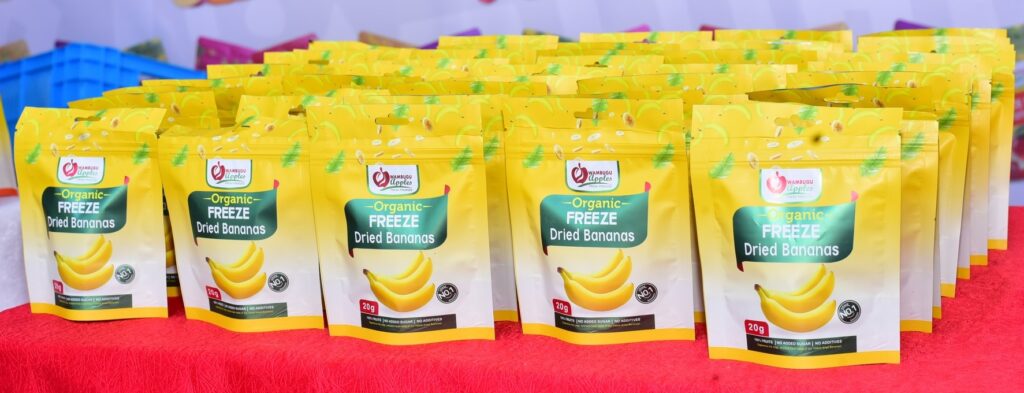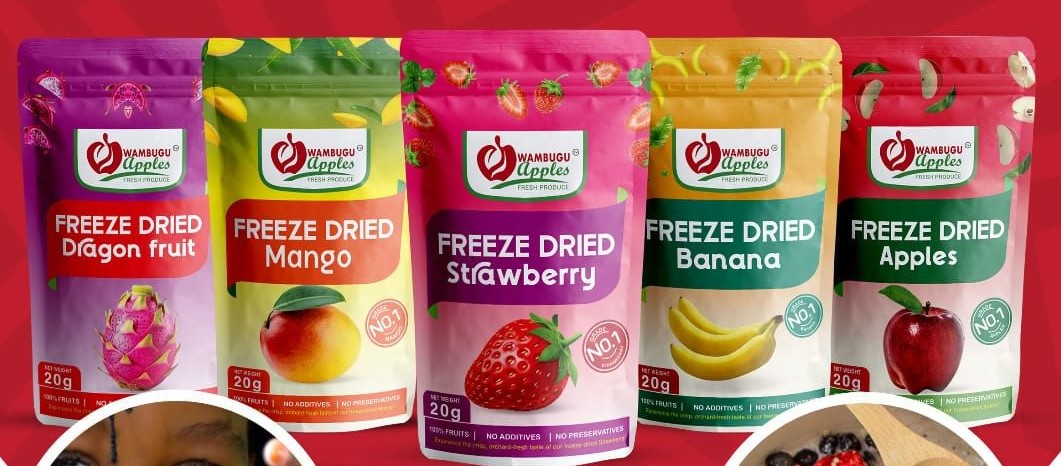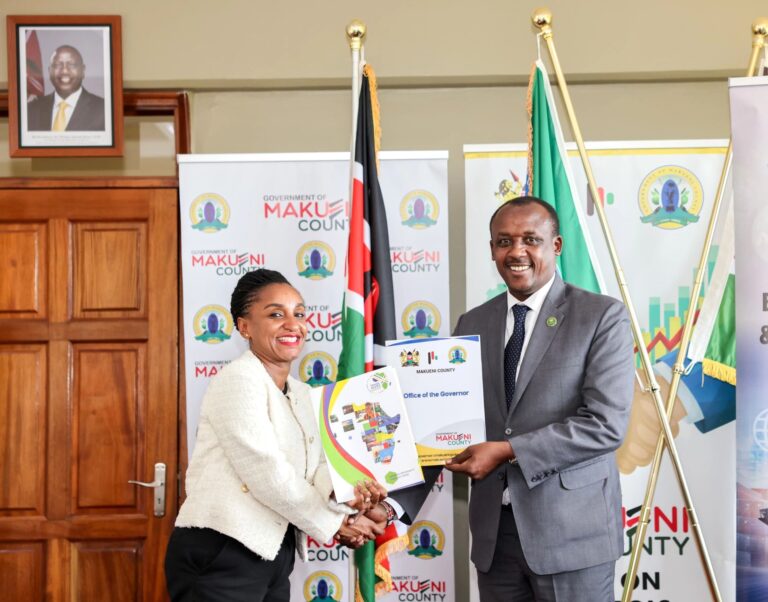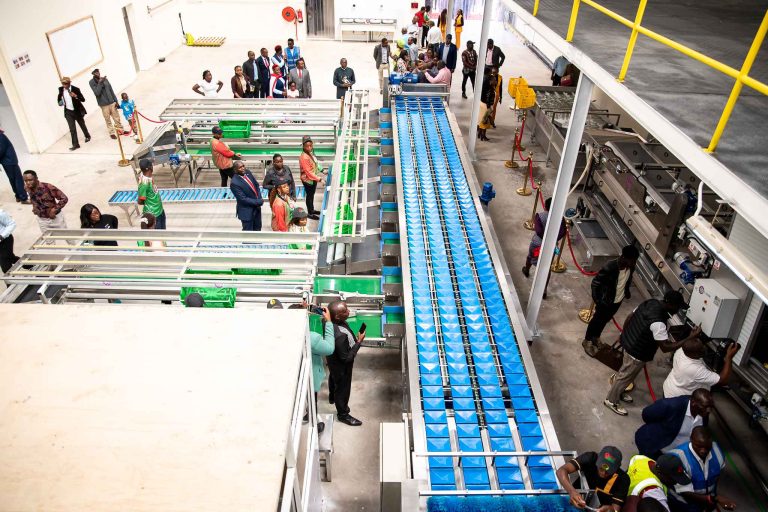By Kimuri Mwangi
The adage that “a dream gets bigger than the dreamer” finds profound expression in the story of Peter Wambugu, a former street mechanic from Nyeri who redefined apple farming in Kenya. In 1985, at his home in Tetu, Nyeri County, Wambugu began grafting different apple varieties. The result was a unique, high-yielding cultivar that would later be officially recognized as the Wambugu Apple.
The new variety outperformed existing strains, prompting Wambugu to shift from mechanics to full-time apple farming. He began selling not just the fruit, but also seedlings—laying the foundation for what would become a thriving agricultural enterprise.
Wambugu’s initial vision not only took root but also inspired his entire family. All his children embraced apple farming, with his daughter, Kate Wambugu, becoming the brand’s ambassador and taking the Wambugu Apple beyond Kenya’s borders.
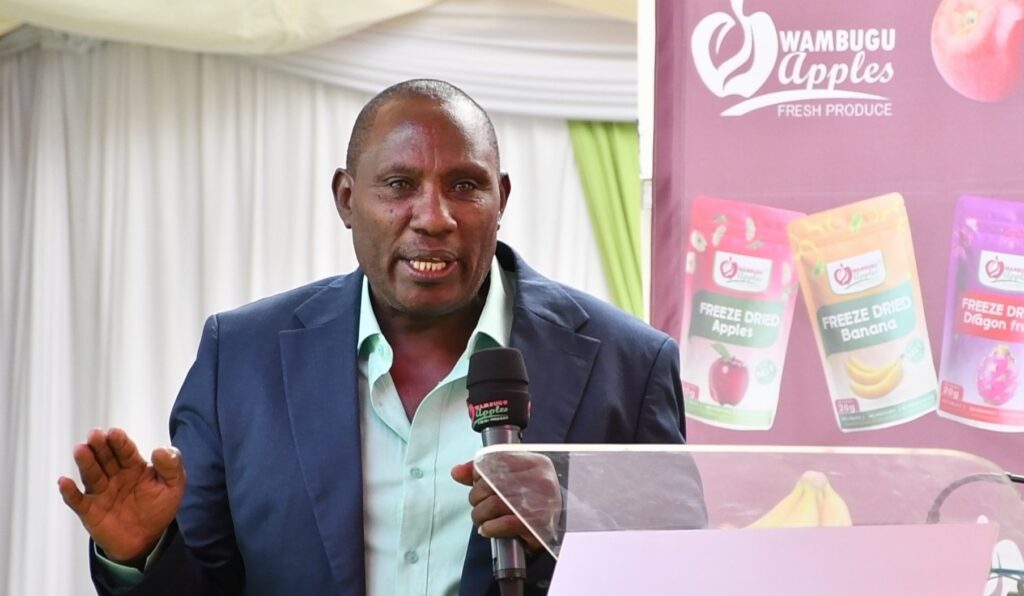
Academic institutions also took notice. Moi University now cultivates 100 acres of Wambugu Apple to supplement its income. Tharaka Nithi University is collaborating with the company on research, while the Catholic University of Zimbabwe has also adopted the apple variety.
From a modest beginning with just 12 apple trees, Wambugu Apples now boasts over three million seedlings distributed across Kenya. According to the company, the variety has reached 36 countries, including in Africa, the Caribbean, and Asia.
Expansion hasn’t stopped at cultivation. Wambugu Apples last year established a state-of-the-art fruit grading and packaging facility capable of handling a diverse array of fruits, including apples, mangoes, avocados, passion fruit, pears, peaches, apricots, and tomatoes, positioning the company for entry into the global fresh fruit export market.
Last week, the company unveiled its latest innovation: a freeze-dried product range aimed at extending shelf life, curbing post-harvest losses, and enhancing food and nutrition security in Kenya and beyond.
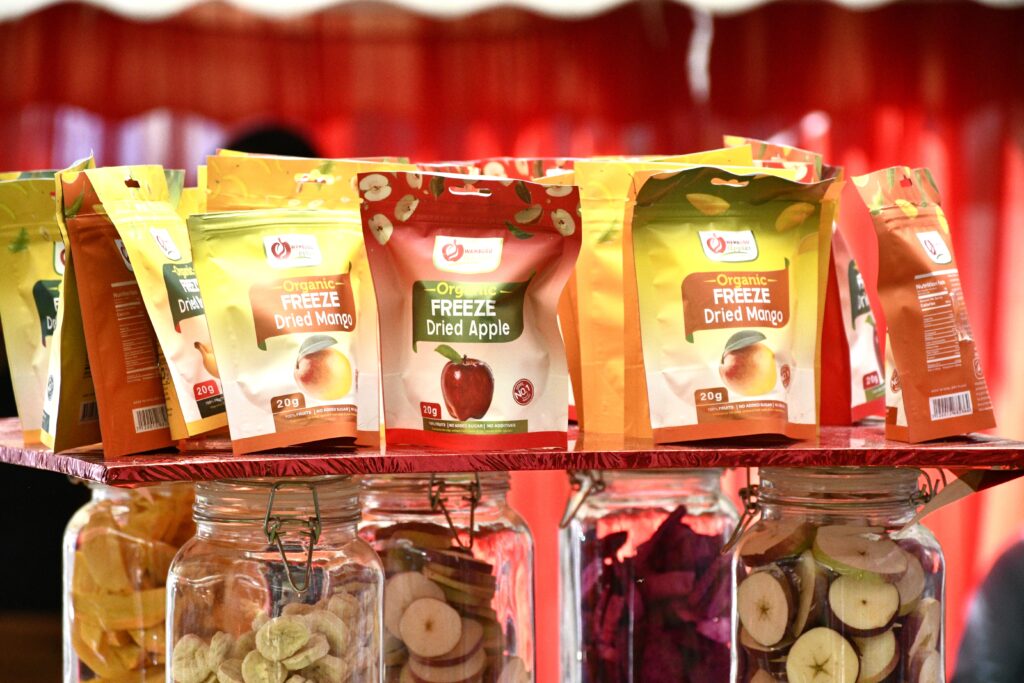
“I’m one of those guys who believe in managing the post-harvest losses, because whatever happens with the farmers, they grow, but they don’t know where to sell,” said Mathew Njenga, Wambugu’s son-in-law and Managing Director of Wambugu Apples, during the launch. “Today, if one is producing tomatoes, everybody tomorrow will be producing tomatoes, so there’s always a glut, and that’s how the idea came up of doing processed fruits. Our idea was only to do the apples, but when we brought in the technology, we realised that we could do much more. The best products that we have currently, besides the apples, are the mangoes and the dragon fruit.”
Wambugu Apples is now freeze-drying apples, bananas, mangoes, dragon fruit, and strawberries. The technology, known as lyophilization, removes moisture from food at low temperatures and pressure, preserving shape, colour, flavour, and nutrients far better than conventional drying methods.
The event was attended by Christine Chesaro, Acting Director at the Horticultural Crops Directorate, who lauded the milestone. “One of the challenges that we have as a country is the very limited product range for exports, especially fruits, with the significant one being avocados,” said Chesaro. I believe we can grow almost any fruit. We have different types of fruits that do well in different ecological zones. I know Wambugu Apples are exporting fresh fruits, and it’s a product that we are looking forward to developing in terms of exports. Our target in the near future is to have about five major products that we are exporting out of this country. And we see the apples coming up fast. It would be great to produce and export something that is Kenyan, like the Wambugu Apple.”
Chesaro emphasized the potential of value-added products in reducing post-harvest losses. “Horticultural crops, whether they’re fruits or vegetables, are highly perishable. Farmers suffer a lot—up to 40 per cent post-harvest losses—because of the lack of the ability to either process or preserve them. When we value-add, we significantly cut down the post-harvest loss. We are told that this value-added product can last even for a year in the market.”
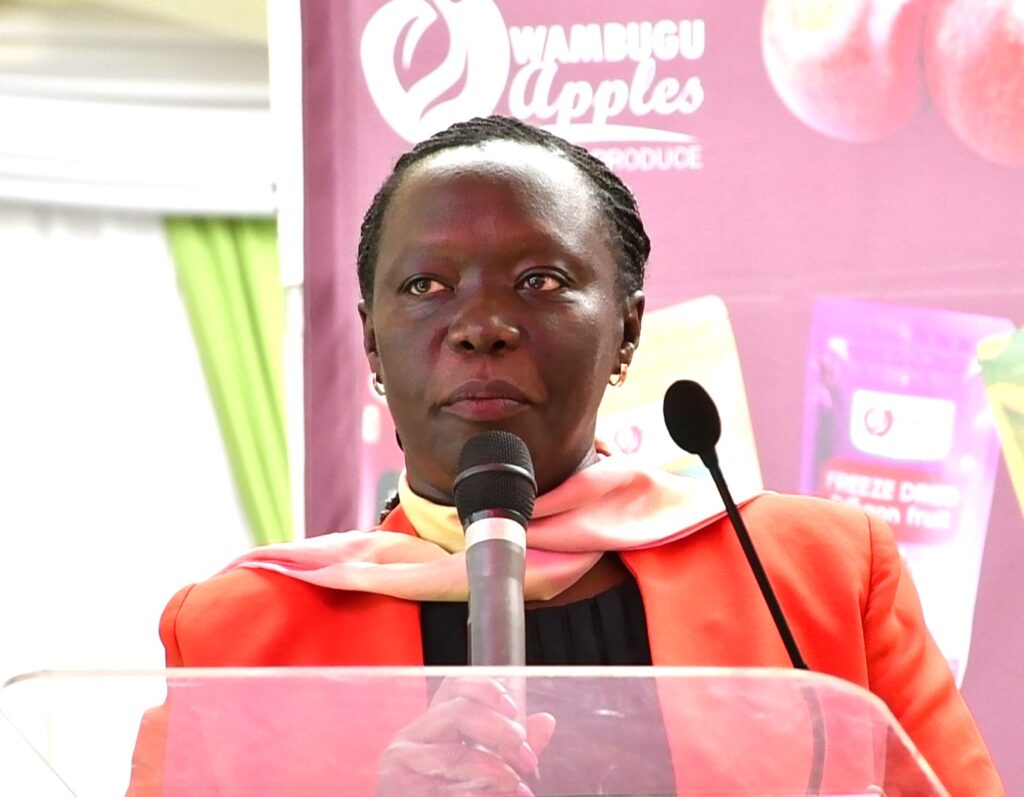
She highlighted further benefits, including the company’s fruit powder, which can be used to flavour yoghurt and cakes. The fruit powder, she says, is ideal, especially for schools that are in remote places, which can buy it and serve it to the children. “It is supporting the food security aspect, leading to a healthy society.”
The government, she pledged, is committed to supporting Wambugu Apples and apple farming in general. “I celebrate with them this milestone, and we look forward to working with them. I believe we are going to work with them to educate the farmers to also diversify into apple production.”
Njenga reiterated the company’s commitment to innovation. “We are the first in the country to use freeze-dried technology. Whatever I see in the market currently is what we call the dehydrated or solar-dried fruits. This is a new technology that we have come up with. We are not stopping at the five products that we are doing; we are going much further. We have two other products on the way. It’s about protecting the farmer first and making sure the farmer has money back in his pocket.”
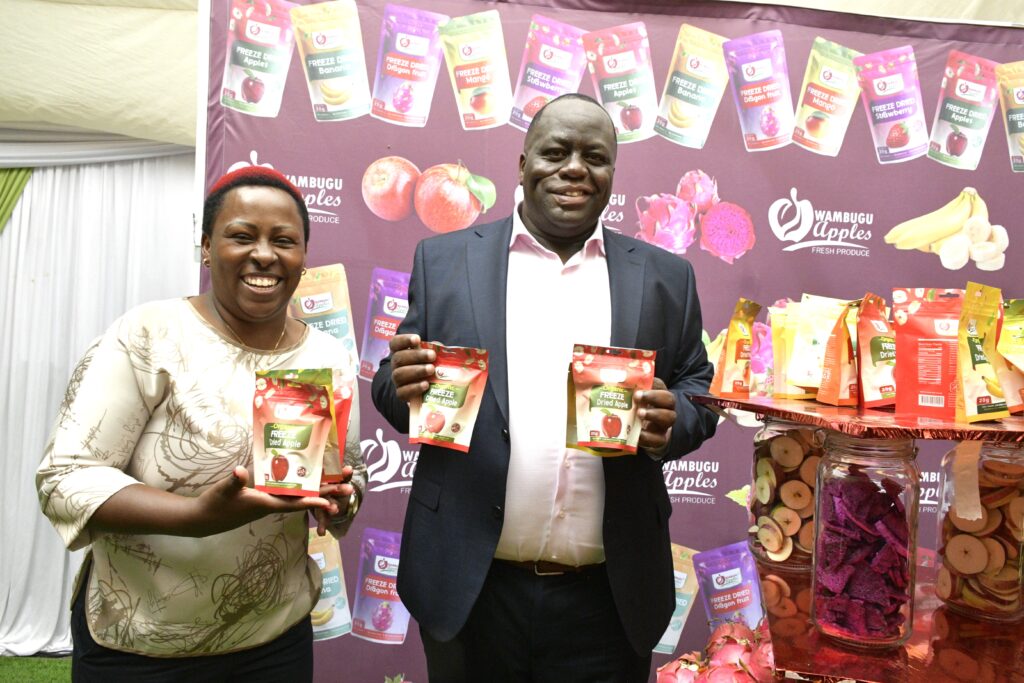
However, he noted the steep costs of production and called for government support. “We don’t have any incentives. We work as any other investor, and when you bring in the machines, you’re charged like any other person, even if you are coming to help other farmers. Currently, we have already spent about Kshs 48 million, and since the market is responding positively, if we want to double it, we have to go to something close to Kshs 100 million.”
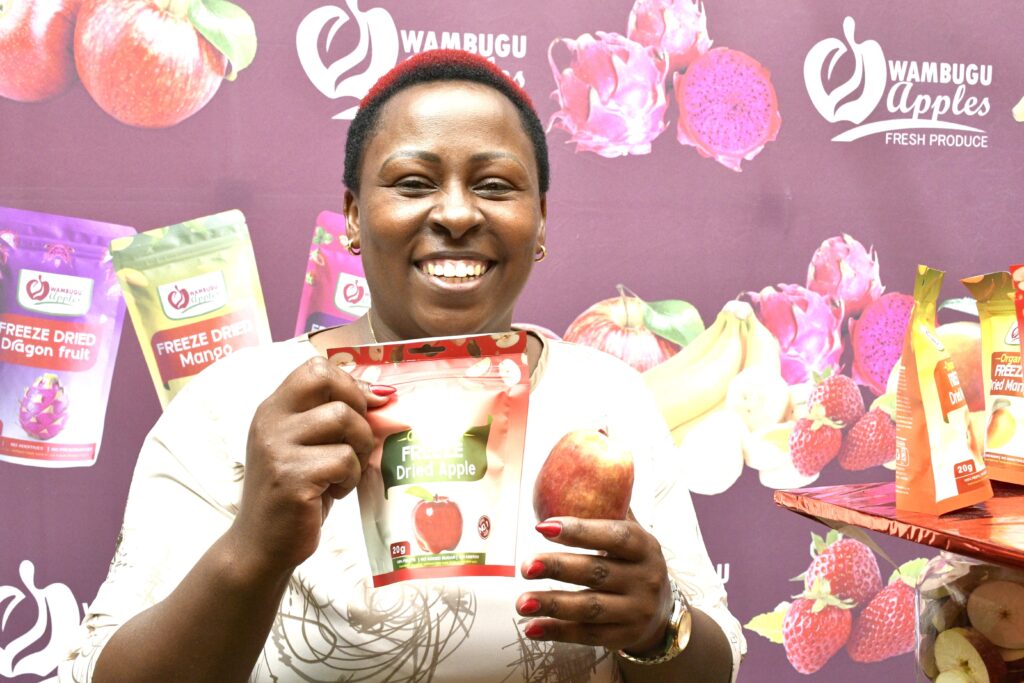
As Wambugu Apples sets its sights on international markets, a Turkish investor who buys their avocados has already taken up the role of main distributor in Turkey. Local distributors, Njenga urged, should step up and seize similar opportunities.
